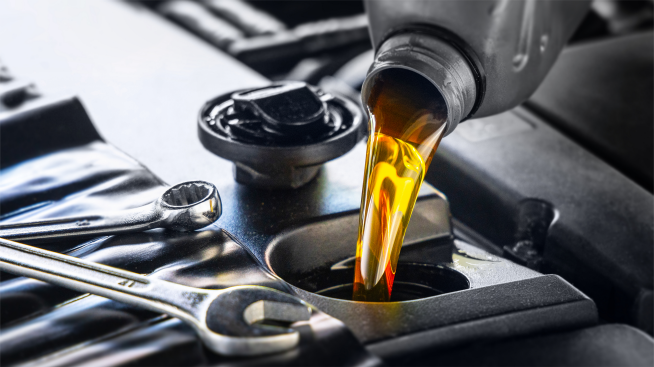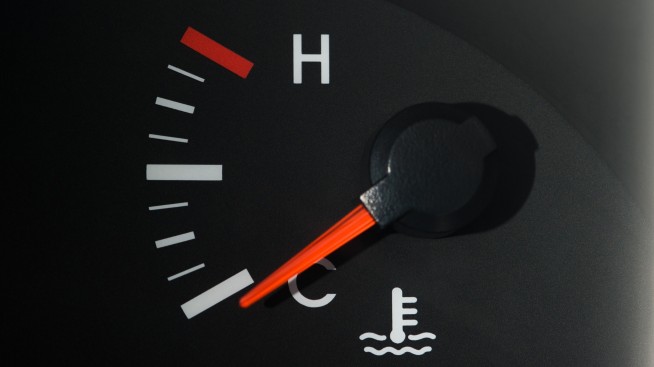Tire pressure: A car owner's guide

It might be easy to overlook tire pressure as a part of your maintenance routine. As you'll find out, however, paying attention to tire pressure may be vital to the overall quality of your ride.
Why does tire pressure matter?
Tire pressure can affect things like fuel economy, ride stability and handling, as well as the overall lifespan of your tires.
Understanding car tire pressure
When it comes to inflating your tires, there's a "sweet spot." Both underinflation and overinflation can have negative consequences:
Underinflated tires
Underinflated tires cause the tire to bow outwards and make extra contact with the road. This may sound deceptively positive — more contact with the road must mean more traction, right? In fact, the opposite is often true. Underinflated tires typically handle worse and have a slower steering response, which may be a risk to you and other drivers.
Another unintended consequence of underinflation is that your tires will receive more friction along a wider surface, which could shorten their lifespan. This added friction also poses an increased risk of blowouts while driving and may lower your fuel economy.
Overinflated tires
Since underinflation can be so potentially dangerous, you can almost see why some might go the other way and overinflate instead. Unfortunately, as we mentioned earlier, this can have negative consequences as well. Whereas underinflated tires make too much contact with the road, overinflated tires run the risk of making too little contact. This too can negatively impact steering, handling and braking.
Why does tire pressure change?
Your car's tire pressure can change naturally over time for three main reasons:
- Temperature: As temperature fluctuates, it affects the air within your tires. Hot air expands and cool air contracts so as the temperature goes up or down, your tire pressure might too.
- Altitude: Changes in altitude affect atmospheric pressure, which may have an effect on your tire pressure. This effect tends to be minimal in most cases but is still helpful to be aware of. Potential seasonal changes in atmospheric pressure may contribute to this effect as well.
- Leakage: Your rubber tires are pretty solid, but from a physics standpoint, they aren't impermeable. As a result, your tires will lose some air over time due to natural leakage.
Outside of tire pressure fluctuating over time, there are also some other potential causes to be aware of:
- Punctures and damage: A puncture or cut to your tires can potentially leak all your air out pretty fast.
- Equipment issues: Problems with the tire's air valve, which is what you use to inflate a tire, could lead to a loss of tire pressure.
What psi should my tires be?
Tire pressure is measured in pounds per square inch, or "psi" for short. When looking to determine the correct car tire psi for your vehicle, there's a common misconception that it's printed along the tire's sidewall. While this number is a psi rating, it indicates the maximum possible pressure the tire can withstand. Inflating the tire to this number would likely result in consistently overinflated tires.
A more reliable source regarding normal tire pressure for your car is inside your owner's manual. It's helpful to follow the manufacturer's recommendations, as these have been carefully calibrated for that make and model. A lot of cars also have a placard sticker with tire pressure information somewhere on the body -- often found on the driver's side doorjamb or in the glove compartment.
How to check your tire pressure
Since proper tire pressure can be so important to your car's performance and safety, it helps to check your car tire psi frequently. Checking your tire pressure is a straightforward procedure using one of the many tire pressure gauges available on the market. These gauges are generally considered inexpensive, though there are also slightly fancier versions offering digital readouts, some even doubling as a portable air pump. These devices typically require you to push the pressure gauge onto the tire's valve stem firmly and evenly to get a reading.
Gas stations sometimes have their own tire pressure gauges for customer use, which can also inflate your tires to the desired psi. Additionally, your mechanic can check out your tire pressure and then inflate your tires as needed.
In summary
Adequate tire pressure is an important part of car maintenance and can affect things like fuel economy, ride stability and handling, as well as the overall lifespan of your tires. It's a good idea to check your car tire psi routinely to enhance your car's performance and keep you safe on the road.



